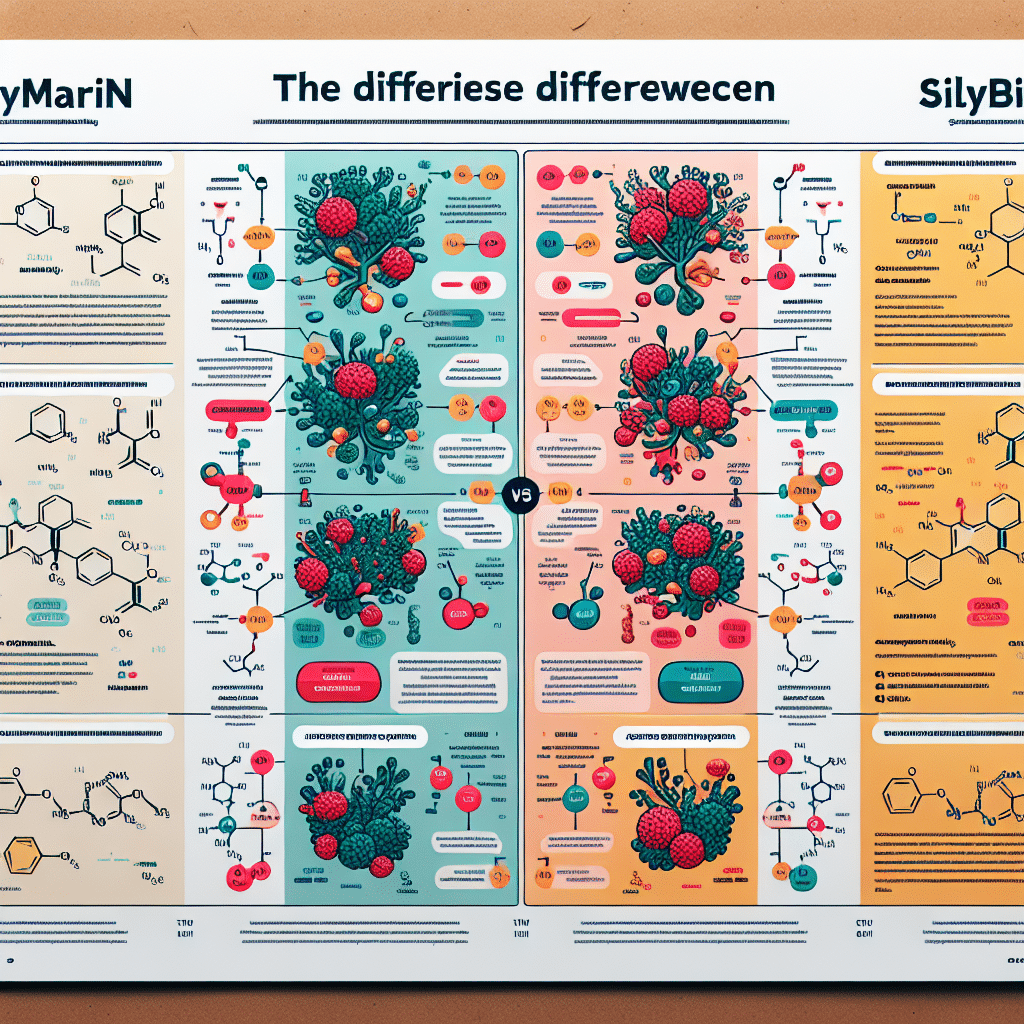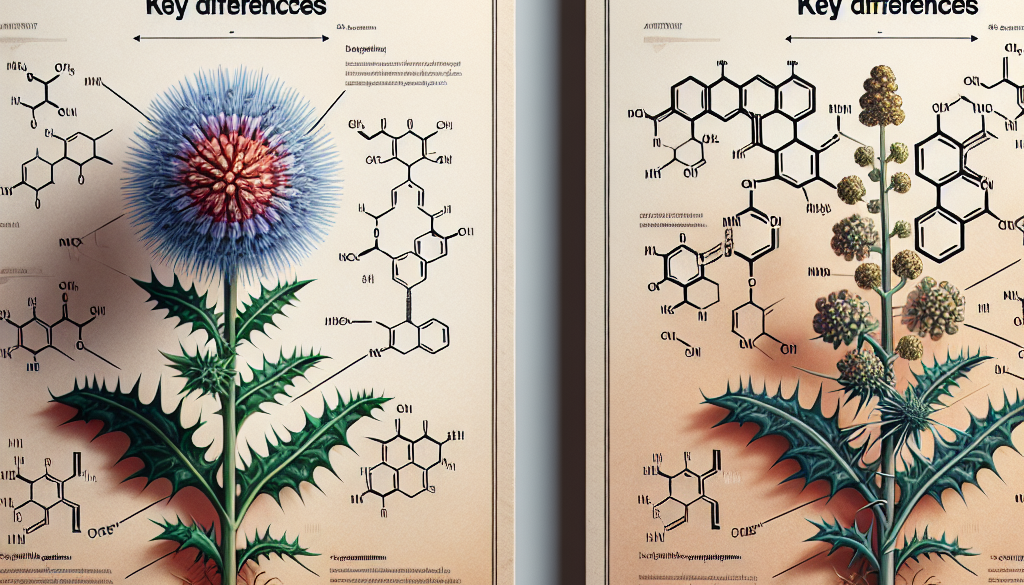Silymarin Silybin: Key Differences Explained
-
Table of Contents
- Silymarin vs. Silybin: Understanding the Distinct Benefits
- What is Silymarin?
- What is Silybin?
- Key Differences Between Silymarin and Silybin
- Health Benefits of Silymarin and Silybin
- Liver Protection and Regeneration
- Antioxidant Effects
- Anti-inflammatory Properties
- Scientific Research and Case Studies
- Applications and Dosage
- Conclusion: Silymarin and Silybin for Liver Health
- Discover ETchem’s Protein Products
Silymarin vs. Silybin: Understanding the Distinct Benefits

When it comes to liver health, two natural compounds often come up in discussions: silymarin and silybin. While they are closely related, there are key differences between them that are important to understand. This article will delve into the nuances of silymarin and silybin, explaining their unique properties, benefits, and applications.
What is Silymarin?
Silymarin is a flavonoid complex extracted from the seeds of the milk thistle plant (Silybum marianum), which has been used for over 2000 years as a herbal remedy for various ailments, particularly liver problems. It is a mixture of flavonolignans, which includes silybin, isosilybin, silydianin, and silychristin, with silybin being the most active and abundant component.
What is Silybin?
Silybin, also known as silibinin, is the primary active constituent of silymarin. It is considered the most potent ingredient of the milk thistle extract due to its high bioactivity and is often the focus of scientific research on the health benefits of milk thistle.
Key Differences Between Silymarin and Silybin
- Composition: Silymarin is a complex containing several compounds, whereas silybin is a single compound.
- Concentration: Silybin is the most concentrated active ingredient in silymarin, typically comprising 50-70% of the extract.
- Pharmacokinetics: Silybin has been studied more extensively for its absorption, metabolism, and biological effects in the body.
- Availability: Silybin is available as a purified substance, which can be used in higher doses for therapeutic purposes, while silymarin is usually found in standardized extracts.
Health Benefits of Silymarin and Silybin
Both silymarin and silybin have been associated with a range of health benefits, particularly for liver health. They are known for their antioxidant, anti-inflammatory, and hepatoprotective properties.
Liver Protection and Regeneration
Silymarin and silybin have been shown to protect liver cells from toxins and promote liver regeneration. They may also be beneficial in treating liver diseases such as cirrhosis, jaundice, hepatitis, and liver cancer.
Antioxidant Effects
These compounds are powerful antioxidants that can help protect the body from oxidative stress and free radical damage, which are linked to chronic diseases and aging.
Anti-inflammatory Properties
Both silymarin and silybin exhibit anti-inflammatory effects, which can be beneficial in reducing inflammation in various conditions, including liver diseases.
Scientific Research and Case Studies
Several studies have highlighted the therapeutic potential of silymarin and silybin. For instance, a study published in the “World Journal of Hepatology” found that silymarin significantly improved liver function in patients with alcoholic liver disease. Another study in the “Journal of Hepatology” demonstrated that silybin, when combined with phosphatidylcholine and vitamin E, improved insulin resistance and liver enzymes in patients with non-alcoholic fatty liver disease.
Applications and Dosage
Silymarin and silybin are available in various forms, including capsules, tablets, and liquid extracts. The dosage can vary depending on the form and concentration of the product. It is essential to follow the manufacturer’s instructions or consult a healthcare provider for proper dosage.
Conclusion: Silymarin and Silybin for Liver Health
In conclusion, while silymarin and silybin are closely related, they have distinct characteristics that make them unique. Silymarin is a complex that includes silybin as its most active component, and both offer significant benefits for liver health and beyond. Understanding their differences is crucial for anyone looking to use these natural compounds for therapeutic purposes.
Discover ETchem’s Protein Products
If you’re interested in high-quality protein products, ETchem offers a range of collagen products that cater to various industries. Their commitment to quality and customer satisfaction makes them a top choice for your protein needs.
About ETChem:
ETChem, a reputable Chinese Collagen factory manufacturer and supplier, is renowned for producing, stocking, exporting, and delivering the highest quality collagens. They include marine collagen, fish collagen, bovine collagen, chicken collagen, type I collagen, type II collagen and type III collagen etc. Their offerings, characterized by a neutral taste, instant solubility attributes, cater to a diverse range of industries. They serve nutraceutical, pharmaceutical, cosmeceutical, veterinary, as well as food and beverage finished product distributors, traders, and manufacturers across Europe, USA, Canada, Australia, Thailand, Japan, Korea, Brazil, and Chile, among others.
ETChem specialization includes exporting and delivering tailor-made collagen powder and finished collagen nutritional supplements. Their extensive product range covers sectors like Food and Beverage, Sports Nutrition, Weight Management, Dietary Supplements, Health and Wellness Products, ensuring comprehensive solutions to meet all your protein needs.
As a trusted company by leading global food and beverage brands and Fortune 500 companies, ETChem reinforces China’s reputation in the global arena. For more information or to sample their products, please contact them and email karen(at)et-chem.com today.




